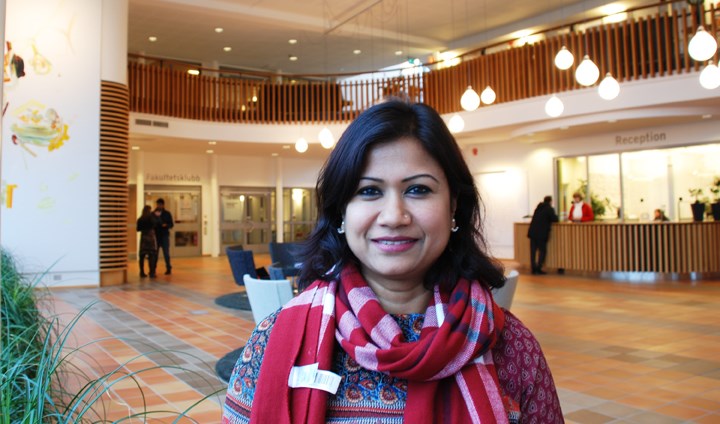Established link between scholarships and girls’ schooling in Bangladesh

Yeasmin Sayeed
Scholarships enable girls to prolong their schooling, thereby putting off marriage.
This link is established by Yeasmin Sayeed in her doctoral thesis in economics at Örebro University. She is also pointing to ways in which VAT can be used to bridge the economic gaps in her native country of Bangladesh.
Yeasmin Sayeed chose the topic for her thesis, Child Marriage, Human Development and Welfare: Using Public Spending, Taxation and Conditional Cash Transfers as Policy Instruments, with her own experience at the back of her mind:
“I have seen poverty and inequality with my own eyes. My hope in doing this research is that it will contribute to improving life for the poor,” she says.
Three of the studies in her thesis fall within the scope of that which can be measured with, to use a United Nations term, “human development”. The most well-known of these measurements are the Millennium Development Goals which last year were replaced by the more comprehensive Sustainable Development Goals.
Prolonged schooling
Measurements of human development, such as girls’ education and gender equality, is a point of departure for Yeasmin Sayeed’s examination of a scholarship programme in Bangladesh. Since 1994, this programme is funding schooling for girls in the Bangladeshi countryside.
Her analysis is based on a number of econometric models and shows that the girls who received scholarships, prolonged their schooling from four months up to a year. And that they were older when they got married – on average five months older. This group of pupils were compared to a group who did not receive any scholarships.
“This is a significant and important difference which long-term has an impact on the opportunities for these girls on the job market,” says Yeasmin Sayeed.
Effect on child mortality
She is the first to apply a certain model to examine this link, which has attracted international attention. At the beginning of February, she presented the study at a conference in Mexico, organised by the World Institute for Development Economics Research, UNU-WIDER.
Testing a number of estimation models in this study was important to the researcher Yeasmin Sayeed.
“I would like to continue to study how marrying later and motherhood training will affect mortality among children and violence against women,” she says.
Yeasmin Sayeed has also studied the effect of VAT, or consumption tax, in Bangladesh. Today, food for example is VAT exempt, which is an indirect subsidy for high-income earners, according to Yeasmin Sayeed.
“This type of taxation becomes regressive since those with low income have to spend a considerably greater portion of their income on food compared to high-income households,” she says.
Favour low-income households
In a country like Bangladesh, where the informal sector makes up a large proportion of the economy and where the public administration is struggling to collect taxes on income, VAT is an obvious alternative. Consumption tax was introduced in the country in 1991 and constitutes the lion’s share of the total national tax revenue, which amounts to ten per cent of GDP. This compares to a total tax revenue of over 40 per cent in Sweden.
Yeasmin Sayeed has studied the effects on welfare from a differentiated VAT with the aim of identifying a model that will favour low-income households and thereby reducing the economic inequality that persists in the county.
Her simulations show that if small-scale operators, such as markets and shops, where the low-income earners buy their food and other goods, are VAT exempt, this group would be able to enjoy a higher standard of living. One reason being that people with low incomes would be able to afford buying other goods, with VAT. The second part of this model is for VAT to be imposed on foods sold in supermarkets, where those with a higher income would do their shopping. And so, since those who make good money, relatively speaking, spend a smaller portion of their income on food, the total effect is a gain in welfare.
“My study shows that by doing this, it is possible to increase national tax revenues, revenues that can be used to help those with low income,” says Yeasmin Sayeed.
Translation: Charlotta Hambre-Knight
Photo: Maria Elisson
